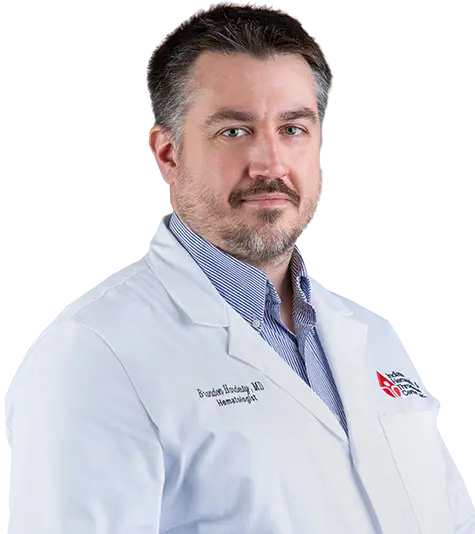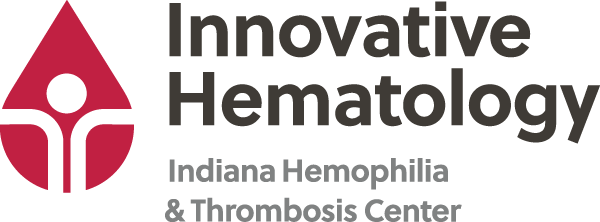Brandon Hardesty, MD - Adult Hematologist
Adult Hematologist
317.871.0000

- Home
- Care Team
- Adult Physicians
- Brandon Hardesty
Get to know Dr. Hardesty
Dr. Hardesty is a board-certified Adult Hematologist at the Indiana Hemophilia and Thrombosis Center (IHTC). Dr. Hardesty is the Indiana project co-director for Sickle Cell Treatment and Outcomes Research in the Midwest (part of the federal Sickle Cell Disease Treatment Demonstration Project – STORM).
Education & Training
- The Ohio State University College of Medicine | MD
- Indiana University School of Medicine | Residency
- Indiana University School of Medicine | Hematology-Oncology Fellowship
Certifications & Licensure
- Indiana State Medical License American Board of Internal Medicine
- American Board of Internal Medicine
- Hematology American Board of Internal Medicine | Oncology
Societies & Honors
- American Society of Hematology
- International Society on Thrombosis and Haemostasis
- World Federation of Hemophilia
Expertise & Special Interests
- Hemophilia
- Sickle Cell Disease
- Point of Care Muskuloskeletal Ultrasound
Hospital Affiliations
- St. Vincent Hospital, Indianapolis
- St. Vincent Hospital, Carmel
- St. Vincent Hospital, Fishers
- St. Vincent Seton Specialty Hospital
- St. Vincent Heart Center
- Indiana University Health
- Indiana University Health North
- Indiana University Health Methodist Hospital
- Indiana University Health Saxony Hospital
- Indiana University Health Morgan Hospital
Play Video
"Working with a team of experts in a variety of fields helps us to deliver care that really improves each patient’s wellbeing."
A short interview with Brandon Hardesty, MD - Adult Hematologist
What is the most exciting area of research you’re involved in?
At IHTC, we have a large enough patient base to study even ultra-rare blood disorders. For example, we recently published a study on a revolutionary new treatment we developed for Plasminogen Deficiency. Our findings are helping patients around the country and the world get better treatment for this rare disorder.
How does your research impact the way you treat your patients?
Studying complications and effective treatments for blood disorders keeps me focused on prevention with the patients I see day-to-day. I see the importance of proactive treatments and monitoring, helping patients reduce their risk factors, and avoiding those acute crises. Through my research, I’m connected with specialists worldwide, so when I do have a complicated situation with one of my patients, I’m able to reach out to an extensive team of experts to get the best possible recommendations.
What do you enjoy most about working at IHTC?
The multidisciplinary team approach here opens doors for better treatment that I didn’t even know existed before I started working at IHTC. Working with a team of experts in a variety of fields helps us to deliver care that really improves each patient’s wellbeing. For example, our pain management team considers at-risk patients individually to reduce their pain levels and help them feel better without over-reliance on opiates. And our joint ultrasound project makes it possible to treat adult hemophilia patients with targeted, data-driven treatments to prevent ongoing joint damage and reduce the risks for severe bleeding.
